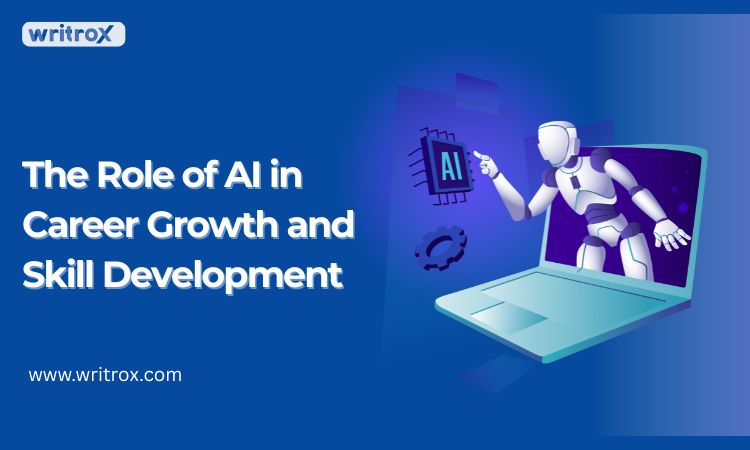Why Career Portfolios Matter and How to Create One?
In a crowded and competitive job market, your resume alone may no longer be enough to get noticed. While resumes provide a summary of your qualifications, they sometimes lack the depth needed to truly highlight your capabilities. Nowadays, employers, clients, as well as hiring managers are not actually interested in what you say you can do. Beyond that, they actually want to see your work, understand your thought process, and know the actual result you delivered. So, that’s where a career portfolio becomes crucial. When it comes to a career portfolio, it actually goes beyond a resume by offering concrete examples of your work, detailed project outcomes, visuals, along with testimonials from real projects. In this blog, we’ll explore why creating one matters a lot and exactly how you can build it. Also Read: Not Getting Interview Calls? Here’s What’s Really Stopping You What Is a Career Portfolio? ding Text Here A career portfolio is more than just a collection of papers. It’s a curated collection of your best professional work and biggest triumphs. In contrast to a resume that summarizes what you’ve achieved, a portfolio shows evidence. A career portfolio may consist of: Work outputs and project briefs Numbers/evidence of measurable achievements (i.e. “Increased sales by 40%”) Case studies and in-depth project descriptions Testimonials or recommendations from clients or employers Relevant credentials like degrees and awards Presentations, publications or thought provoking pieces Coverage, media clips, screenshots Timeline of your career, or skills matrix As a portfolio can exist as a PDF document, a personal website, a management platform like Notion, or as a dedicated section on LinkedIn, it should be in whatever form meets your goals. Why Does a Career Portfolio Matter? Now that we know what a career portfolio consists of, let’s find out how it impacts your recruitment. 1. Evidence over Possibility Employers and clients want evidence. They want to see the outcomes, not just a title. A portfolio can answer questions like: What solutions have you designed or delivered? How do you approach challenges and problems? What verifiable results do you produce? Instead of providing generic bullet points, you will show your added value. 2. Gain a Competitive Advantage Most professionals are still using only their resumes. When you have a well-crafted portfolio, you are able to set yourself apart immediately, highlighting credibility and intentionality. In fact, a portfolio has been shown to double your chances of getting interview calls especially for leadership and client-facing roles. 3. Have Better Conversations Imagine being at an interview or pitching to a client. You not only talk about your skills. You must also show your skills in practice by mentioning specific projects you’ve worked on, discuss your results, and provide a visual that supports your story. 4. Personal Branding and Visibility The short answer is: Before you actually need it. Don’t wait until you are in the middle of a job hunt or looking for a writing client – create your portfolio ahead of time. Here are some key points when a portfolio becomes critical: Career transitions: Whether you are changing jobs or moving industries, a portfolio shows that your skills are portable. Mid or senior-level professionals: Mid or senior levels are expected to share the strategic impact that their work has had on a product or company. You must add meaningful contributions and community engagement, and not just a list of tasks accomplished. Freelancers and consultants: You can start building trust immediately with potential clients by offering evidence of results, work samples/stories and/or testimonials from clients. Performance reviews / promotion: This helps you develop the right approach for documenting your impact and contributions. It essentially demonstrates growth. Public speaking engagements or professional panels: This section speaks for your leadership qualities and provides evidence of your expertise and experience. How a Career Portfolio Differs from a Resume? Let’s be clear. Your resume and portfolio are not interchangeable: Feature Resume Career Portfolio Format 1–2 pages, text-based summary Multi-section, includes documents & visuals Depth Brief outline of career In-depth proof, context, results Flexibility Standardized structure Highly customizable Use Case Required for all applications Used for verification, interviews, pitches Typical Content Work history, education, basic skills Work samples, testimonials, case studies, visuals Step-by-Step Guide: Building an Effective Career Portfolio: Let’s get started! Here’s how to build a portfolio that will work for you and not just collect digital dust. 1. Identify Your Purpose Now before you go getting documents together, ask yourself: Who is my audience? (Employers, clients, partners) What do I want to achieve? (Job application, client pitch, internal review) How do I want to be perceived? (Leader, specialist, creative) Your answers to these questions will help you determine your portfolio’s tone and character. 2. Organize Your Core Sections You will want to structure the portfolio for maximum value. Here are some sections to consider putting in your portfolio: About You: A short, compelling professional bio. Key Skills: Real-life evidence to show you are a master. Project Highlights: Select 3-5 projects that you found impactful. For each, include: Situation/context What you did Results (quantified) Challenges Testimonials: Reviews and other considerations from managers, peers or clients. Certification & Education: Include the ones that are relevant to the job you’re applying for. You can also aim to make a lasting impression by presenting your best achievements to the recruiters. Media, Publications, or Workshops: Include these to exemplify your leadership skills. 3. Gather and Curate Your Materials Here is what you should aggregate (but be clear in your focus): Your resume (certainly not the first time to have it included but you can do so when you update it) Samples of your best and most relevant work Copies of your degrees, certificates, and awards Letters of recommendation or positive email messages Any articles published, blog posts or even just things from social media (highlights will do) Screenshots, images, or charts that can help tell your story. 4. Add the Numbers. Show Outcomes. Instead of simply stating the tasks you completed, you should: Highlight the metrics: “I helped reduce onboarding time by 40%.” Show the scale: “I quickly trained over 200 employees
Why Career Portfolios Matter and How to Create One? Read More »




